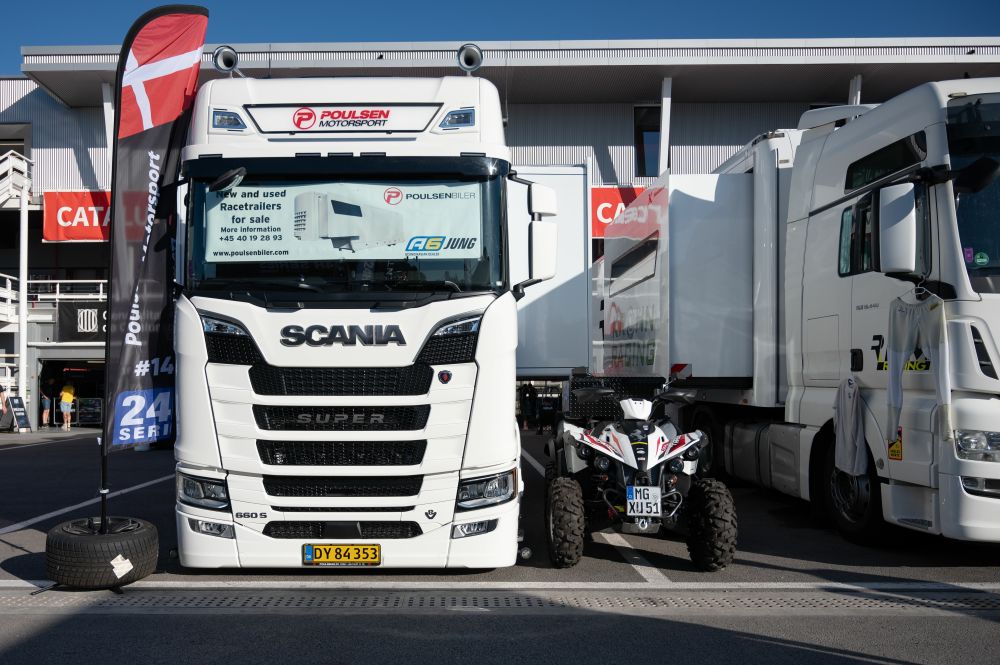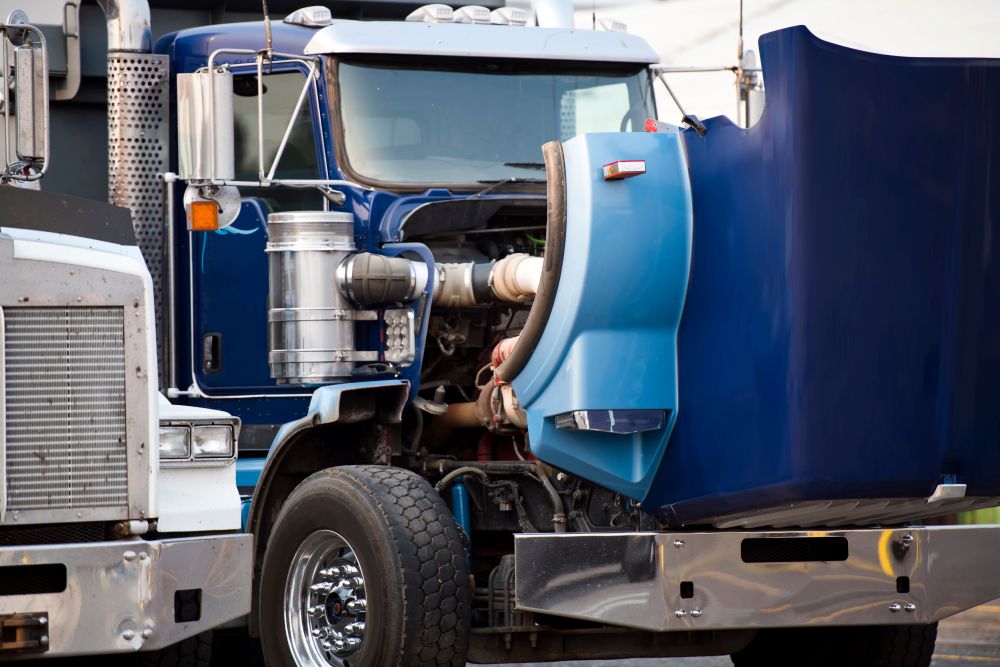
Are you considering becoming a commercial truck driver? We can understand why. Commercial vehicle drivers, particularly semi-truck drivers, are in high demand in the US. Truck drivers often earn good salaries, too.
But how much do semi-truck drivers make an hour, and what influences their potential income? Get the facts in this guide to semi-truck driver earnings.
How Much Does a Semi-Truck Driver Make?
The answer to this question can vary widely, depending on where you look for the information. Job sites base their calculations on what the job posts they’re sharing are offering. Meanwhile, government websites post statistics based on more comprehensive data.
However, job sites will give you a pretty good indication of what many truck drivers are earning. They also provide valuable info on the requirements for different types of semi-truck-driving jobs.
National Average Truck Driver
How much do semi-truck drivers make an hour or per year according to government data?
Let’s look at the US Bureau of Labor Statistics’ last available data (2023) for heavy and tractor-trailer truck driver salaries. It showed a median of $54,320 per year or $26.12 per hour. Also, approximately 240,300 openings for heavy and tractor-trailer truck drivers are projected each year, on average, until 2033.
Meanwhile, the median annual wage for all workers at that time was $48,060. This proves that heavy truck driving can be a sensible career choice.

Average Salary Annual Salary and Hourly Earnings on Job Sites
According to the employment site Indeed, the average salary for a truck driver in the US is $93,206 per year or $30.99 an hour. But, truck driver salaries start at about $41,408 a year.
Why such a big difference? Owner-operators with their own semi-trucks are likely the ones earning the higher salaries. Truck drivers who drive for smaller businesses are probably the ones at the lower end of the pay scale.
The Highest Paying Semi-Truck Driver Jobs
There are different types of truck-driving jobs. Semi-truck driver jobs that involve specialized vehicles, very long distances and difficult driving conditions, or dangerous cargo usually have the highest earning potential.
Of course, if you own your own truck and act as an independent contractor, you’ll have even better odds of a good income.
Owner-Operators
The average salary for an owner-operator driver in the US is $147 per hour or $343,218 per year. But this is more open to variation than other trucker jobs because owner-operators themselves determine what their earnings will be.
Being an owner-operator truck driver gives you more freedom and more earning potential, and it also demands more responsibility. But if you’re thinking of making a career as a solo driver, you’re not alone. Many resources can help you make a success of your path as an owner-operator.
American Trucking Associations don’t just provide vital support to large trucking businesses and fleet owners. They also help truck owner-operators stay up-to-date with industry trends and navigate state regulatory compliance.

Specialty Vehicle Haulers
What truck drivers earn often depends on what type of truck they’re driving. So, how much do semi-truck drivers make an hour driving specialty vehicles such as car haulers? According to data on the job site Indeed, the average salary in the US for a car hauler is $48.09 per hour or $96,173 per year.
Driving specialty vehicles like those designed for construction or hauling new cars can pay quite well. That said, it typically requires further training aside from a commercial driver’s license (CDL).
That said, it offers job seekers more flexibility, allowing drivers to apply for a wider range of semi-truck driving jobs. You may decide to start driving a regular delivery truck and work your way up to driving a specialty vehicle.
Over the Road Truckers
Over-the-road or OTR truckers transport goods over long distances, across state lines, and even across international borders. Unlike regional drivers, they are on the road for several weeks or even months at a time, on average 300 days annually. That’s why they usually earn more than regional truck drivers.
The average OTR trucker base salary before bonuses or profit sharing, according to Payscale, is currently $65,974 per year or $24.23 an hour. But it can be far higher for experienced drivers working for large, international companies.
Continuous long-distance driving is not for everybody. But, the abundance of truck stops in the US makes these long-haul drivers’ lives a lot easier. So, remember to check out our truck drivers’ guide to truck stops if you’re interested in long-distance trucking.

Hazmat Drivers
How much does a semi-truck driver make an hour? What they’re hauling can influence their potential income. Hazmat transport is the perfect example. The average hazmat truck driver in the United States earns approximately $30 an hour, but some can earn much more.
Hazmat truck drivers transport hazardous materials from place to place, preventing these toxic substances from harming people and more populated environments. It pays well because of the higher risks involved than with other cargo.
These drivers must inspect containers of hazardous materials for leaks or damage, load and secure them in the truck, and unload them again. And all the while, they have to wear protective gear and follow stringent safety regulations.
What Affects The Average Annual Salary Of A Semi-Truck Driver?
How much does a semi-truck driver make an hour, and what are the factors that determine that rate? The company the driver works for, the business size and location, the job description, and the trucking route all play a role in determining salary.
Location and Route Type
Location often plays a larger role in earning potential than you might think. This is true for almost every industry and job description, including driving a semi.
Local drivers who aren’t finding the salary they’re looking for and don’t mind relocating simply try somewhere else. Trucker salaries can vary widely between states, so relocation may prove to be the answer to raising your hourly rate.
The route driven is another significant factor. Driving through rough terrain, high-crime areas, dangerous climatic conditions, and steep or narrow roads makes driving a semi much more challenging and risky. That often means you can demand more pay per hour.
These risk factors also contribute to the need for comprehensive commercial truck insurance. This is insurance designed to protect against damage and loss along the road. There are different types of truck insurance, so read through our commercial truck insurance tips to find the best coverage.

Business Size and Job Description
Who you choose to work for and the role assigned to you will affect what you can earn as a commercial truck driver. Is it a small, local business just starting to make a name for itself or a major player in the trucking industry with a huge fleet? The salaries they offer will be very different.
Also, truck driver jobs are not all alike.
Some truck-driving jobs require much longer distances and more hours on the road than others. On the plus side, they will typically pay more than 9-5 delivery drivers. And if you’ll be driving a specialty vehicle or transporting dangerous goods, you can also look forward to an even higher potential income.
The Driver’s Experience
You’ll need a commercial driver’s license (CDL) to drive a commercial truck in the US. You’ll find a few smaller companies willing to give you a job with less experience if you can prove proficiency. The important thing is having a CDL, being healthy and drug-free, with a clear driving record.
If you haven’t got your CDL yet, check out our guide to the top CDL training schools for semi-truck drivers. This is the first step on the journey to becoming a well-paid semi-truck driver.
But aside from the commercial driver’s license, most trucking companies look for experience. Some companies require that job applicants have a CDL for at least two years before applying with them. If you’re going to be driving a specialty vehicle or transporting hazardous goods, this will be even more important.
Knowledge of transport logistics, preventive truck maintenance, and the routes you’ll be expected to drive will be to your advantage. And it won’t hurt if you’re tech-savvy, either. Modern trucks use integrated telematics and AI technologies, and you’ll need to know how they function.
Conclusion
How much do semi-truck drivers make an hour? Their earning potential depends on various factors. These include their location, routes, experience, working conditions, who they work for, the type of truck, and the cargo they haul.
Most semi-truck drivers earn a good salary and enjoy the freedom of being on the open road. And if you’re thinking of putting that CDL to use with your own truck as an owner/operator, Mission Financial Services can help.
Regardless of whether you’re looking for a new or used truck, the top of the range or a budget beast, we’ll get you the financing you need. Contact us today to get the wheels turning.

























